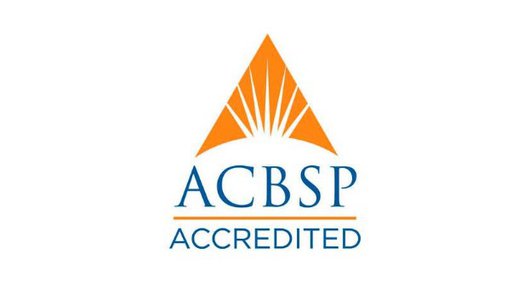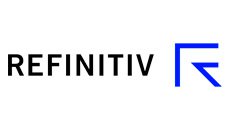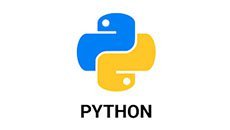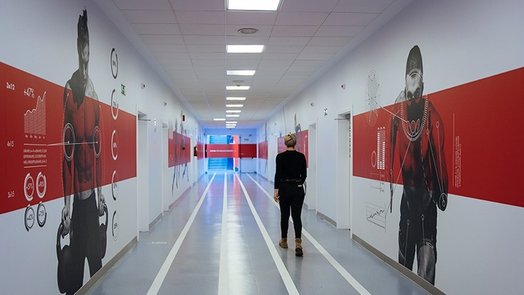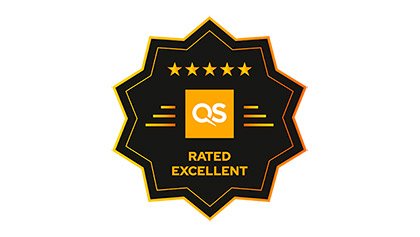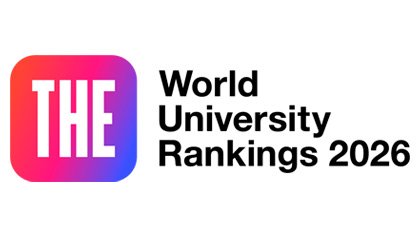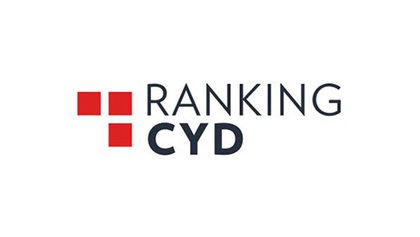-50% Discount on place reservation for 26/27 intake until February 28th!
Degree in Economics
The degree in Economics is a four-year programme that aims to train future professionals in the new digital economy, from a global, sustainable perspective. If you choose to study this economics degree, you will acquire the necessary knowledge, skills, resources, and competencies to make rigorous, well-informed economic decisions, in which technology, the global environment and sustainability will be the foundations of the learning process.
This bachelor's degree in Economics prepares you to be an economist of the future, in an international environment in which you’ll develop analytical capabilities, learning to use the latest technology and innovation. You will learn from an experienced faculty made up of leading experts still active in the workplace today, as well as have the opportunity to complete internships and work placements.
Official degree issued by Universidad Europea de Madrid
| Campus-based | Villaviciosa de Odón | 4 years, 240 ECTS | Start: 14 sep. 2026 | Faculty of Economics, Business and Communication Sciences |
Study plan
Study plan structure
A curriculum designed from the hand and from the needs of the professional sector.
During the first year of the degree, you will acquire more general knowledge and the basics of economic science that will lay the foundations of your training. From the second year onwards, you will progressively advance in the real application of the competencies and learning in real challenges, handling of digital tools, practical research and innovation that you will use in the real work environment.
Programa de estudios
PRIMER CURSO
| Materia | ECTS | Tipo | Idioma de impartición |
|---|---|---|---|
| Fundamentals of macroeconomics | 6 | BASIC | English (en) |
| Mathematics for economics I | 6 | BASIC | English (en) |
| Fundamentals of business law | 6 | BASIC | English (en) |
| Fundamentals of business administration | 6 | BASIC | English (en) |
| Financial accounting I | 6 | BASIC | English (en) |
| Fundamentals of microeconomics | 6 | BASIC | English (en) |
| Mathematics for economics II | 6 | BASIC | English (en) |
| International areas and markets | 6 | COMPULSORY | English (en) |
| Economic history and economic thought | 6 | BASIC | English (en) |
| Financial accounting II | 6 | COMPULSORY | English (en) |
SEGUNDO CURSO
| Materia | ECTS | Tipo | Idioma de impartición |
|---|---|---|---|
| Macroeconomics | 6 | COMPULSORY | English (en) |
| Microeconomics | 6 | COMPULSORY | English (en) |
| Communication and negotiation skills | 6 | COMPULSORY | English (en) |
| Statistics | 6 | BASIC | English (en) |
| Practical research - Digital tools - LAB | 6 | COMPULSORY | English (en) |
| Dynamic macroeconomics | 6 | COMPULSORY | English (en) |
| Game theory | 6 | COMPULSORY | English (en) |
| Econometrics I | 6 | COMPULSORY | English (en) |
| Financial products and risk management | 6 | COMPULSORY | English (en) |
| Business analytics | 6 | COMPULSORY | English (en) |
TERCER CURSO
| Materia | ECTS | Tipo | Idioma de impartición |
|---|---|---|---|
| New economy I - Sustainable and circular economy | 6 | COMPULSORY | English (en) |
| Financial management | 6 | COMPULSORY | English (en) |
| Econometrics II | 6 | COMPULSORY | English (en) |
| International economic law | 6 | COMPULSORY | English (en) |
| Business intelligence and programming | 6 | COMPULSORY | English (en) |
| New economics II. Neuroeconomics | 6 | COMPULSORY | English (en) |
| Strategic management | 6 | COMPULSORY | English (en) |
| Fundamental and technical analysis of investments | 6 | COMPULSORY | English (en) |
| Spanish taxation | 6 | COMPULSORY | English (en) |
| Technological innovation - EconomicLAB | 6 | COMPULSORY | English (en) |
CUARTO CURSO
| Materia | ECTS | Tipo | Idioma de impartición |
|---|---|---|---|
| International economic organisations | 6 | COMPULSORY | English (en) |
| Economic growth | 6 | COMPULSORY | English (en) |
| International Taxation | 6 | COMPULSORY | English (en) |
| Public Economics | 6 | COMPULSORY | English (en) |
| Foreign Trade | 6 | COMPULSORY | English (en) |
| Models and time series in economics | 6 | COMPULSORY | English (en) |
| Graduation project | 6 | GRADUATION PROJECT | English (en) |
| Academic internships | 6 | INTERNSHIPS | English (en) |
| Ethics in international business | 6 | ELECTIVE | English (en) |
| Digital marketing | 6 | ELECTIVE | English (en) |
| Theory and analysis of international conflicts | 6 | ELECTIVE | English (en) |
| Company assessment | 6 | ELECTIVE | English (en) |
| People management | 6 | ELECTIVE | English (en) |
| Logistics and operations | 6 | ELECTIVE | English (en) |
Programme implementation
First academic year: 2023-2024 academic year
New intake
80 places
Mobility offer of the degree
To request all the information regarding our mobility offer, you can access here.
Internships
Internship regulations
Internships are a key part of your training. Gaining experience after learning in your degree program is the best way to enter the job market. There are two types of Internships: curricular (included in your curriculum) and extracurricular (those completed voluntarily).
To take part in curricular internships in companies, you must have passed 50% of the credits and enrolled in the subject before beginning the internship. These internships are conducted with follow-up by the company and by the internship professor, as well as intermediate and final reports for assessment.
If you want to improve your work experience before finishing your university training, you can take part in extracurricular internships. You may do so in any year, but remember that internships are complementary to your studies, so the more knowledge you have acquired throughout your degree program, the better you will be able to take advantage of your internship experience.
Employability
Studying a Bachelor’s Degree in Economics is a very appealing option due to the high degree of employability, both at private companies and in the public sector, in Spain and abroad. Graduates in this sector are often inclined to launch their own business initiatives, thereby diversifying the job market and promoting new job creation.
In the public sector, Economics graduates are especially welcome in international economic organisations such as European Union institutions (European Commission, ECB, EESC, EIB, etc.) and international organisations such as the World Bank, Inter-American Development Bank, IMF, etc.
There are also ample employment opportunities in the private sector: banks, consulting firms, audit firms and in general all types of companies, to perform a wide variety of roles that range from research and economic services to the management of different economic and financial departments and general management and research.
Managerial positions at companies
- General Management
- Financial Management
- Production Management
- Sales Management and Marketing
Consulting
- Economic advisor
- Sustainable economics advisor
- Financial advisor
- Tax advisor
- M&A analyst
- Auditor/Accountant
- Economic policy consultant
- Strategic consultant
Financial markets
- Financial market analyst
- Investment analyst
- Risk analyst
Entrepreneur
- New business in all sectors.
Public service
- International Organisations and Institutions
- European Union Bodies and Institutions
- International Economic Organisations
- General State Administration
- Local and regional authorities.
Admissions
Start your future at Universidad Europea
You can become a student at Universidad Europea in three easy steps.
1
Admission exams
Start your admission process by calling +34 918257503 or request information and our advisors will contact you.
2
Place reservation
Once you have been admitted, secure your place by paying the reservation fee.
3
Enrollment
Submit the required documents to formalise your enrollment.
Scholarships and financial aid
We want to help you. If you want to study at Universidad Europea, you will have at your disposal a wide selection of own and official scholarships.
Credit recognition and transfers
You don’t have to stick with something you don’t like. That’s why we’ve designed specific plans for credit recognition and transfers.
Request your online credit recognition review, transfer your academic file and start studying at Universidad Europea.
Admission profile and entry requirements
The ideal profile for future students of the Bachelor's Degree in Economics:
- Students interested in working in any area of the company, in any sector.
- Working professionals who want to make a qualitative leap in their professional career.
- Graduates in Higher Level Vocational Training Cycles.
You will be able to access the Degree in Business Administration through one of the following options:
- Passing the University Entrance Exam, in accordance with current legislation.
- Apt in the Entrance Exams for over 25 years old and over 45 years old.
- Higher Technicians, Higher Technicians of Plastic Arts and Design and Higher Sports Technicians.
- Graduates, Graduates, Technical Engineers, Engineers, Architects or Graduates.
- Graduates of educational systems of member states of the European Union and other countries with which international agreements have been signed, in compliance with the provisions of the regulations in force.
- Students enrolling the Global Bachelor in English should acreditate a level B2 of language in the Common European Framework of Reference for Languages of the European Higher Education Area.
Students from other countries and those who do not have an international agreement signed, must homologate their studies and take the university entrance exam(s) if required according to RD 412/2014.
Open days
Join us at one of our Open Days and see for yourself how our advanced educational methodology works, meet the faculty members who are already thinking of your future, get more information on the programs we offer, and find out how to begin your studies with us in the next academic year.
21 March
Faculty
74% of our professors are highly prestigious PhDs in the area of teaching.
Our teachers
- Cristobal Matarán López
Cristóbal Matarán has a Ph.D. in economics from King Juan Carlos University (2021), a MSc from the same university (2014) and another MSc in Teaching from Universidad Europea de Madrid (2018). Currently he works as an evaluator in the magazine Procesos de Mercado. His researches are focused on contemporary history of the economic thought. - Begoña Casas Sierra
PhD Cum Laude in International Public Law and International Relations, ands a second PhD in Blue Economy and Sustainability. Executive MBA at ESADE Business School (Prized Talented Student), Master Degree in Tax Assessment for Professionals at IE Business School, Master Degree in European Union Law and European Policies at Universidad Nacional de Educación a Distancia (UNED). She provides professional experience working for different multinationals as Business Manager, Third-Sector Manager and various international organizations, such as the United Nations and the European Commission. - Angel Muñiz Mejuto
He is an economist currently studying a PhD in Economic History at Universidad Carlos III de Madrid de Madrid. He holds a MSc in Economics and a MSc in Social Sciences both from the same university (2019 and 2021). His main research areas are related to Economic History, Institutional Economics and Macroeconomics, with a high training in econometrics and mathematical economics as well. - Antonio Salas Fuentevilla
20 years of experience in marketing, business development and sales in a variety of organizations and companies. He has an extensive background being Master in Commercial and Marketing Management by the Instituto de Empresa and Master MBA and Master in Big Data and Business Intelligence by the EOI. He is currently continuing his development in the field of Artificial Intelligence applied to business. - César San Juan
He holds a PhD in Finance Economics (Universidad Complutense de Madrid, 2002). His main research areas are related to Banking and Financial Markets.
He has published several articles and books about Financial Markets and Accounting. - Rafael Escalera Rivas
Mechanical Engineer from Universidad Politécnica de Madrid (2008) and master in natural building from Universitat de Lleida (2014). His professional career has been always focused in involving students in their own education process. That is the reason why he is formed in coaching and NLP. He has a Youtube channel were he tauch physics and have just publish a book in november 2021 called "La flecha o cómo responder a la pregunta ¿Y tú qué quieres hacer con tu vida?" - Eva Romero Ramos
Her main line of research is in stochastic differential equations with financial applications. - Eva Ropero Moriones
Her main lines of research include: Finance and Educational Innovation. - Federico Soto González
Over 10 years of experience in the air transportation sector with duties in the areas of corporate strategy, alliances, internationalization, and government relations. - Francisco Javier del Arco
Freelance consultant in areas of business viability and sports management. - Luis A. López Fraile
Professional Practices Manager at Universidad Europea de Madrid. Relations with companies for assigning internship places and managing educational cooperation agreements. He has vast experience in the sector of advertising and human resources management. His primary areas of interest and research are advertising strategy, employability, and new technologies in management processes. - Máximo Cortés Navajas
Business consultant and trainer and promoter of different business initiatives, as well as publications and academic research projects. - Raquel Ureña Joyanes
Her main areas of research are ICTS and business innovation and business sustainability. - Tiziana Priede Bergamini
Her research work focuses on social entrepreneurship and family business.
Excellence endorsed by the best
Frequently Asked Questions
Is a Degree in Economics hard?
Economics involves the study of how people and societies allocate scarce resources, which can require a deep understanding of mathematical and statistical concepts, as well as an ability to think critically and creatively about economic issues. That being said, many students find economics to be a rewarding and engaging field of study, and with the right mindset and dedication, it is certainly possible to succeed in an economics degree programme.
At Universidad Europea, throughout your degree you will learn from an experienced faculty made up of experts in their area. You will also be able to complete internships and work placements, and gain the knowledge and skills necessary to succeed in whatever role you decide to go into once you graduate.
What careers is economics good for?
An Economics Degree can prepare you for a wide range of careers, as it provides training in analytical, quantitative, and critical thinking skills that are highly valued in many industries. Some common career paths for economics graduates include:
- Managerial positions at companies
- Consulting
- Financial markets
- Entrepreneur
- Public service
What does an Economics Degree involve?
An Economics Degree typically involves subjects that cover a wide range of topics related to the study of how individuals, businesses, and societies allocate scarce resources. Some of the key areas of study in an economics degree include:
- Microeconomics
- Macroeconomics
- International financing and economics
- Public economics, taxation, and how governments use their resources
At Universidad Europea, the Degree in Economics starts by looking at the broader terms so you will acquire a general understanding. From the second year onwards, the subjects become more specialist and you can choose different modules according to your interests.
How long does a Degree in Economics take?
A Degree in Economics takes four years to study. At Universidad Europea, you will have the chance to complete internships at organisations in different sectors, learning from experienced professionals.
As an international university that focuses on preparing you on acquiring the skills needed to succeed wherever you choose to live and work, we have agreements with numerous partner universities around the world for you to carry out study exchange programmes.

